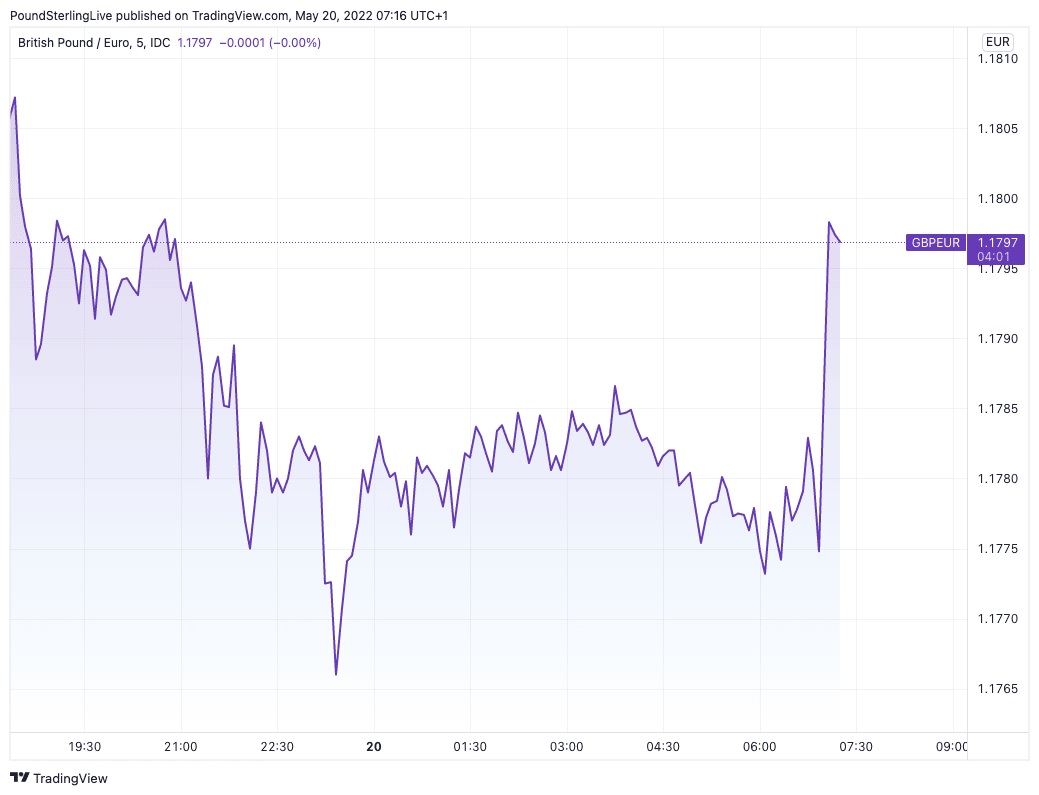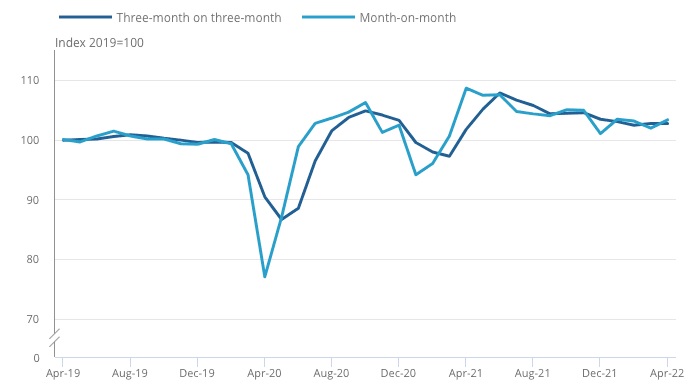 The pound gained ground against its peers Friday following the release of better-than-anticipated economic data. According to the ONS, the country’s retail sales volumes grew by 1.40% in April 2022 following a decline of 1.20% in March, and better than the 0.20% decline anticipated by economists. While food store sales volumes increased 2.80%, car fuel sales volumes grew by 1.40%. The increase in food store sales volumes was aided by a rise in spending on alcohol and tobacco. Notably, in March, car fuel sales volumes fell by 4.20% when an increase in petrol costs affected sales.
The pound gained ground against its peers Friday following the release of better-than-anticipated economic data. According to the ONS, the country’s retail sales volumes grew by 1.40% in April 2022 following a decline of 1.20% in March, and better than the 0.20% decline anticipated by economists. While food store sales volumes increased 2.80%, car fuel sales volumes grew by 1.40%. The increase in food store sales volumes was aided by a rise in spending on alcohol and tobacco. Notably, in March, car fuel sales volumes fell by 4.20% when an increase in petrol costs affected sales.
Nicholas Farr, Assistant Economist at Capital Economics, has pointed out that the cost of the living issue has not resulted in a collapse of consumer spending. Farr further stated that even though it will probably become harder for consumers as the pressure on real incomes of households due to higher inflationary pressure rises, the signals of a rebound in economic activity as reflected by the retail sales data are promising.
The pound inched higher following the impressive retail sales numbers with the GBP/EUR conversion rate increasing to 1.1790 and the GBP/EUR conversion rate growing to 1.2478. In spite of the unexpected rise in retail sales in April, data indicates that retail sales volumes declined 0.30% in the three months to April, compared with the earlier three months. Retail sales have been on a decline since summer 2021.
This is partly explained by the post-Covid transition from commodities purchase to services expenditure. Additionally, it is also detailed by increasing inflationary pressure, which will probably trigger a slowdown in demand. It is this forecast for a consumer-led decline in demand that has forced the Bank of England (BoE) to caution about a slowdown in economic activity in the months ahead.
Currency strategists, in the meantime, continue to stress that the anticipated slowdown is a reason for traders to be worried about the pound.
James Smith, Developed Markets Economist at ING Bank, stated that
“When looking at the big picture, total retail expenditure is still somewhat below the levels recorded during the fall of the previous year. This is mostly the result of a discernible downward trend in internet shopping. When compared to the same period in the prior year, these are around 5 percent lower. Although it may be easy to attribute this to the rise in the living costs, we believe that at least some of it reflect customers shying away from spending on products and back toward offerings.”
In separate news, GfK has stated that the UK’s consumer confidence index declined to a historically low level of -40. Joe Staton, client strategy director at GfK opined that consumer confidence remains weaker than the gloomiest period of the global financial crisis, Covid lockdown and the effect of Brexit on the economy.

ING Smith has pointed out that optimism is currently at record lows and that will probably result in negative growth in the second quarter. However, a huge savings buffer and a robust jobs market imply a gruesome recession is unlikely.

ING anticipates the economy to record a contraction in the current quarter, primarily due to a decline in government Covid spending and the impact of the additional bank holiday to celebrate the Queen’s jubilee, instead of the “worsening consumer rhetoric.”
Notably, many economists do not expect the UK economy to enter recession as consumers have amassed savings during the pandemic to make use of. The rate of household savings could decline from the recent higher levels, paving way for uninterrupted consumption. Economists believe that the UK will enter recession only if housing, banks or the labor market gets seriously affected. All three domains remain strong as of now.



